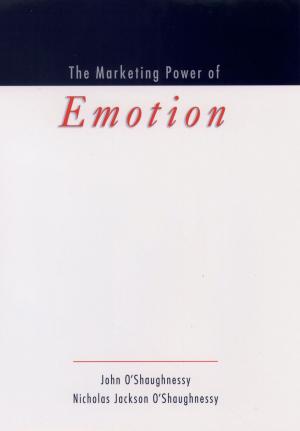The Logic of American Nuclear Strategy
Why Strategic Superiority Matters
Nonfiction, Social & Cultural Studies, Political Science, International, International Security, Politics, History & Theory, Business & Finance| Author: | Matthew Kroenig | ISBN: | 9780190849207 |
| Publisher: | Oxford University Press | Publication: | January 25, 2018 |
| Imprint: | Oxford University Press | Language: | English |
| Author: | Matthew Kroenig |
| ISBN: | 9780190849207 |
| Publisher: | Oxford University Press |
| Publication: | January 25, 2018 |
| Imprint: | Oxford University Press |
| Language: | English |
For decades, the reigning scholarly wisdom about nuclear weapons policy has been that the United States only needs the ability to absorb an enemy nuclear attack and still be able to respond with a devastating counterattack. So long as the US, or any other nation, retains such an assured retaliation capability, no sane leader would intentionally launch a nuclear attack against it, and nuclear deterrence will hold. According to this theory, possessing more weapons than necessary for a second-strike capability is illogical. This argument is reasonable, but, when compared to the empirical record, it raises an important puzzle. Empirically, we see that the United States has always maintained a nuclear posture that is much more robust than a mere second-strike capability. In The Logic of American Nuclear Strategy, Matthew Kroenig challenges the conventional wisdom and explains why a robust nuclear posture, above and beyond a mere second-strike capability, contributes to a state's national security goals. In fact, when a state has a robust nuclear weapons force, such a capability reduces its expected costs in a war, provides it with bargaining leverage, and ultimately enhances nuclear deterrence. This book provides a novel theoretical explanation for why military nuclear advantages translate into geopolitical advantages. In so doing, it helps resolve one of the most-intractable puzzles in international security studies. Buoyed by an innovative thesis and a vast array of historical and quantitative evidence, The Logic of American Nuclear Strategy will force scholars to reconsider their basic assumptions about the logic of nuclear deterrence.
For decades, the reigning scholarly wisdom about nuclear weapons policy has been that the United States only needs the ability to absorb an enemy nuclear attack and still be able to respond with a devastating counterattack. So long as the US, or any other nation, retains such an assured retaliation capability, no sane leader would intentionally launch a nuclear attack against it, and nuclear deterrence will hold. According to this theory, possessing more weapons than necessary for a second-strike capability is illogical. This argument is reasonable, but, when compared to the empirical record, it raises an important puzzle. Empirically, we see that the United States has always maintained a nuclear posture that is much more robust than a mere second-strike capability. In The Logic of American Nuclear Strategy, Matthew Kroenig challenges the conventional wisdom and explains why a robust nuclear posture, above and beyond a mere second-strike capability, contributes to a state's national security goals. In fact, when a state has a robust nuclear weapons force, such a capability reduces its expected costs in a war, provides it with bargaining leverage, and ultimately enhances nuclear deterrence. This book provides a novel theoretical explanation for why military nuclear advantages translate into geopolitical advantages. In so doing, it helps resolve one of the most-intractable puzzles in international security studies. Buoyed by an innovative thesis and a vast array of historical and quantitative evidence, The Logic of American Nuclear Strategy will force scholars to reconsider their basic assumptions about the logic of nuclear deterrence.















